As sales dominate the profitability of a business, efficient identification and prioritization of leads is crucial for maximizing revenue for business growth. Traditional lead scoring methods often fall short, facing limitations in accuracy, consistency, and adaptability to dynamic market conditions. Entering predictive lead scoring empowered by Artificial Intelligence (AI) – breaks the jinx of the traditional sales approach in the Salesforce regime, which promises to revolutionize how businesses identify and engage with their most promising leads.
While traditional lead scoring methods have their merits, Salesforce Experts believe this technique often fumbles the businesses to connect with tens to thousands of potential leads unquestioningly without any strategic calculation and analysis.
According to an article from Springer Link, on average, the conversion rate of getting qualified leads from potential prospects is only 10%, from which only 1 to 6% become customers. The primary reason for this issue is poor lead management strategies, including spending time and resources on low-quality leads, probably away from the conversion affinity.
Keeping up with the evolving landscape of customer behavior and market trends, predictive lead scoring, infused with the power of AI, offers a solution through advanced algorithms and data analytics to provide more accurate predictions about lead quality. It not only enhances the efficiency of sales teams but hits the bull’s eye precisely, ensuring customer engagement through a more targeted and personalized approach.
Want to improve your sales count? Lending your attention to lead management is equally essential. For this, delve with us into this blog to unlock the potential of predictive lead scoring in elevating your sales count through Salesforce implementation and AI integration.
Evolution of Lead Scoring: From Traditional to AI
Initially reliant on manual assessments and basic scoring systems, the approach has shifted towards more advanced methodologies as digital interactions and data availability expanded.
With the advent of AI, particularly machine learning and natural language processing, lead scoring has become a dynamic, data-driven process. Responding to the transformation, adapting to changing customer behaviors, and optimizing their strategies for identifying and prioritizing leads, the collaboration of technology and technique has propelled lead scoring to new heights, offering unprecedented insights and efficiency in pursuing successful lead generations.
Artificial Intelligence, in amalgamation with Machine Learning, with its ability to analyze vast datasets and identify complex patterns, emerges as a catalyst for transforming lead scoring in Salesforce. It assigns credible customer scores, evaluating several considerations and assigning a score.
An audience with a better score gets more priority from the sales reps to be a potential for a business. By automating and refining the lead scoring process, AI ensures firms can lead the competition and make data-driven decisions that drive revenue growth.
Here are curated a few essential pointers that witness the evolution from the ground level:
Manual Scoring: An Intricate Process
Traditional lead scoring relies on manual processes, making it susceptible to human error and inconsistency. Sales and marketing teams may use different criteria or assign weights to the same criteria. At the same time, the current situation has resulted in a lack of consistency, which could potentially cause issues with inaccurate prioritization of leads.
Criteria Inconsistencies
Lead scoring faces a challenge due to the static nature of the criteria used. In today’s dynamic market, customer behaviors and preferences change rapidly, making traditional lead-scoring criteria obsolete. As a result, lead prioritization becomes less effective as conventional lead scoring struggles to adapt to these changes.
Adapting to Market Dynamics
The market constantly evolves, and businesses need agile systems to adapt. Traditional lead scoring models often lack the flexibility to quickly adjust to shifting market dynamics, leading to missed opportunities and suboptimal decision-making.
Considering the above traditional challenges, Salesforce technical partners consider integrating AI in the existing business operations environment, especially for sales reps, to accelerate revenue growth. Here are some trending pointers one must know:
Machine Learning and Predictive Analytics
Machine learning is at the core of predictive lead scoring, a subset of AI that boosts systems to learn from collected data and improve their predictions over time.
By utilizing predictive analytics, businesses can leverage historical data to identify patterns and trends that may be invisible to human analysis. It enables a more nuanced and accurate evaluation of leads.
Analyzing Large Datasets for Accuracy
The data produced in the modern business industry can be too much for manual processes. AI is excellent at managing large datasets, uncovering valuable insights, and making predictions based on complete and current information. In the Salesforce context, this means having a more accurate understanding of lead characteristics and behavior.
Identifying Patterns in Customer Behavior
One of the critical strengths of AI is its ability to identify customer behavior patterns that may take time to become apparent. Predictive lead-scoring algorithms can analyze many variables and recognize subtle connections, allowing businesses to tailor their approach to individual leads based on historical interactions and preferences.
Predictive Lead Scoring: A Grace to Enterprise Lead Growth
Are you looking for a fully furnished predictive scoring model? It’s close to your reach as AI is now helping Salesforce consulting companies harness the benefits of this trending model built up with advanced algorithms and machine learning.
Businesses can now navigate the complexities of lead prioritization with unparalleled precision. Through this innovative approach, there is an enhancement in the accuracy of identifying high-potential leads and streamlining sales processes. Here is a curated list of prominent features that Salesforce experts feel are essential and love using in real-time analytics.
Increased Accuracy in Lead Identification
The primary advantage of predictive lead scoring is the heightened accuracy in identifying high-potential leads. By relying on data-driven insights and machine learning algorithms, businesses can minimize the risk of misjudging lead quality and focus their efforts on prospects with the greatest likelihood of conversion.
Improved Sales Team Efficiency
AI-powered lead scoring streamlines the workflow of sales teams by automating the labour-intensive manual scoring process. It saves time and ensures sales representatives concentrate on leads with the highest propensity to convert, increasing efficiency and productivity.
Enhanced Targeting and Personalization
Personalized engagement is a critical aspect of modern customer relations. With the help of AI-powered predictive lead scoring, businesses can customize their communication and marketing strategies to align with individual leads’ unique needs and preferences. This tailored approach significantly improves customer satisfaction and boosts the likelihood of successful conversions.
Implementation Tips: From a Salesforce Expert’s View
Embark on a journey to revolutionize your lead management strategy with insights from a seasoned Salesforce expert like Erudite Works. Predictive Lead Scoring, under expert guidance, becomes fruitful for enterprise growth. Unleash the power of AI to navigate Salesforce intricacies, ensuring accurate lead identification and streamlined processes.
As a Salesforce expert, I’ve witnessed firsthand the transformative impact – from increased conversion rates to a more personalized approach. Embrace this technique, and let’s elevate your enterprise lead growth together, ensuring your Salesforce experience is efficient and exceptional.
Data Preparation and Cleaning
The foundation of successful predictive lead scoring lies in the quality of the data. Businesses must invest time and resources in preparing and cleaning their datasets to ensure accuracy and reliability. It involves removing duplicates, correcting errors, and standardizing data formats.
Feature and Criteria Selection
It is of utmost importance for businesses to identify the appropriate features and criteria for lead scoring. They should consider explicit and implicit factors such as demographic information, past interactions, and online behavior. Defining the most relevant criteria requires a collaborative effort between sales and marketing teams.
Choosing the Right AI Model
To choose the suitable AI model for predictive lead scoring, you need to consider the complexity of your business environment and the type of data you have. Several commonly used models can be regarded, including logistic regression, decision trees, and neural networks. It’s essential to know the strengths and limitations of each model to make an informed decision.
Integration with Salesforce
Seamless integration with Salesforce is essential to leverage the benefits of predictive lead scoring fully. Businesses should ensure the AI model is synchronized with the CRM platform, allowing real-time updates and a unified view of lead data for the entire sales team.
Best Practices for Successful Implementation: A Salesforce Expert’s Guidance
Guided by a Salesforce expert’s insights, discover the best practices for successful implementation tailored to the unique intricacies of Salesforce. From meticulous data preparation to collaborative team efforts, I share vital strategies honed through experience to ensure your predictive lead-scoring integration is seamless and practical.
Elevate your Salesforce journey with expert guidance, unlocking the full potential of predictive lead scoring for unparalleled business success.
Continuous Monitoring and Refinement
Implementing predictive lead scoring is not a one-time effort but an ongoing process. Continuous monitoring of the AI model’s performance is crucial to identify any deviations or shifts in the market. Regular refinement of the model based on new data and evolving business requirements ensures that it remains accurate and effective over time.
Collaboration Between Teams
Success in predictive lead scoring hinges on effective collaboration between sales and marketing teams. Both teams must actively participate in defining criteria, interpreting results, and providing feedback to enhance the accuracy of the scoring model. This collaboration fosters department alignment, leading to a more unified and practical approach to lead management.
Regular AI Model Training
Regular training is essential to keep the predictive lead scoring model relevant and responsive to changing market dynamics. Periodic updates ensure the AI model adapts to new trends, emerging customer behaviors, and evolving business strategies. Continuous learning allows the model to maintain its predictive accuracy over the long term.
Conclusion
By surpassing the limitations of conventional approaches, organizations can enhance their sales strategies by attaining increased efficiency, accuracy, and personalization. With the continuous development of technology, there are thrilling prospects for predictive lead scoring in the future. Salesforce experts will play a crucial role in making it an essential tool to gain an edge over competitors. Embrace the power of AI in Salesforce and embark on a journey toward enhanced sales performance and sustained business growth.
Also Read: The Impact of Salesforce consulting firms on improving sales and customer satisfaction


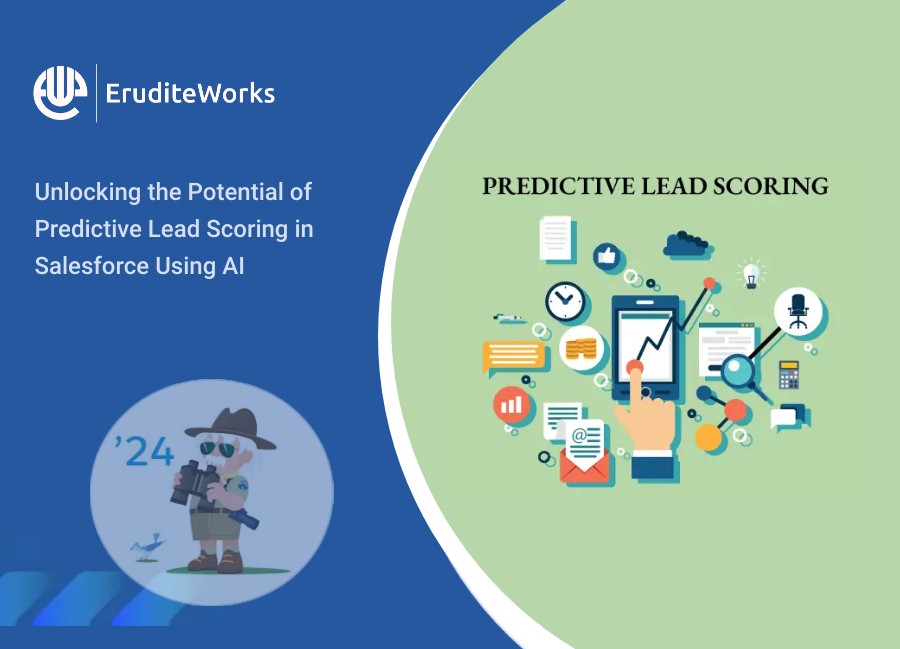
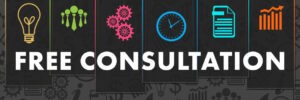
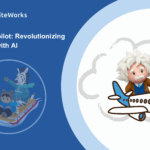
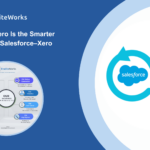
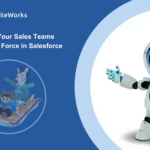
0 Comments